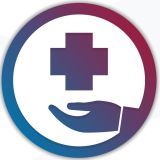In this article:
What is a Clinical Medical Assisting Degree?
A clinical medical assisting degree prepares students to work alongside doctors and nurses in medical offices, hospitals, and clinics. This program focuses on both administrative and hands-on patient care skills, allowing graduates to assist with medical procedures, take vital signs, collect lab samples, and update patient records.
Students in this program learn about medical terminology, anatomy, and healthcare laws. They also gain experience with clinical tasks such as drawing blood, administering injections, and preparing patients for exams. Many programs include lab work and internships to provide real-world experience in a medical setting.
Program Options
Clinical medical assisting degree programs are available at different levels, each offering varying depths of training and career opportunities. Here are the main program options:
- Certificate in Clinical Medical Assisting: A short-term program (typically six months to one year) that focuses on essential medical assisting skills, including patient care, medical office procedures, and basic clinical tasks. This is a fast-track option for those who want to enter the workforce quickly.
- Diploma in Clinical Medical Assisting: A slightly longer program (usually nine months to one year) that provides more in-depth training in clinical procedures, anatomy, and medical office management. This option may include hands-on lab experience and externships.
- Associate Degree in Clinical Medical Assisting: A two-year program that includes both clinical medical assisting training and general education courses. This degree provides a broader foundation in healthcare and may lead to more job opportunities or career advancement. Some graduates use this degree as a stepping stone to further education in nursing or other healthcare fields.
Skills You’ll Learn
A clinical medical assisting degree equips students with a variety of skills needed to support healthcare professionals and provide patient care. Some of the key skills learned include:
- Patient Care and Clinical Procedures: Learning to take vital signs, assist with medical exams, administer injections, draw blood, and perform basic laboratory tests.
- Medical Terminology and Anatomy: Gaining an understanding of medical terms, human anatomy, and common medical conditions to effectively communicate with healthcare professionals and patients.
- Medical Office Administration: Developing skills in scheduling appointments, maintaining patient records, handling insurance billing, and managing electronic health records (EHR).
- Infection Control and Safety Procedures: Understanding proper sterilization techniques, infection prevention, and workplace safety protocols to ensure a clean and safe medical environment.
- Phlebotomy and Laboratory Skills: Learning how to collect and prepare lab specimens, conduct basic lab tests, and follow proper procedures for handling biological samples.
- Communication and Patient Interaction: Enhancing verbal and written communication skills to provide clear instructions to patients, assist doctors and nurses, and offer compassionate care.
- Healthcare Ethics and Legal Knowledge: Studying patient confidentiality laws, medical ethics, and healthcare regulations to ensure compliance with standards like HIPAA (Health Insurance Portability and Accountability Act).
What Can You Do with a Clinical Medical Assisting Degree?
A clinical medical assisting degree prepares graduates for a variety of roles in healthcare settings, where they provide both administrative and clinical support to medical professionals. Some of the career options available include:
- Clinical Medical Assistant: Work in doctors’ offices, hospitals, or clinics, assisting with patient exams, taking vital signs, drawing blood, and updating medical records. Medical assistants also handle administrative duties such as scheduling appointments and managing patient information.
- Phlebotomist: Specialize in drawing blood for medical tests, transfusions, and donations. Phlebotomists work in hospitals, laboratories, and blood donation centers, ensuring proper handling and labeling of blood samples.
- Medical Laboratory Assistant: Work in medical laboratories, preparing specimens for testing and assisting lab technicians with basic diagnostic procedures.
- Medical Administrative Assistant: Focus on administrative tasks such as medical billing, insurance processing, and patient scheduling. Medical office administrators help healthcare facilities run smoothly and ensure patient records are properly maintained.
- Medical Billing and Coding Technician: Specialize in translating medical procedures into standardized codes for insurance and billing purposes. This role is essential in healthcare facilities to ensure accurate patient billing and insurance claims processing.
- EKG Technician: Operate electrocardiogram (EKG) machines to monitor and record patients’ heart activity. This role is important in diagnosing heart conditions and is commonly found in hospitals and cardiology clinics.
- Patient Care Coordinator: Patient care coordinators manage patient care plans, ensuring patients receive timely and appropriate healthcare services. They work closely with healthcare providers, patients, and families to coordinate treatment plans and follow-up care.
- Health Information Technician: Health information technicians manage and organize health data, ensuring it is accurate, accessible, and secure. They work with electronic health records and may specialize in medical coding, data analysis, or information management.

